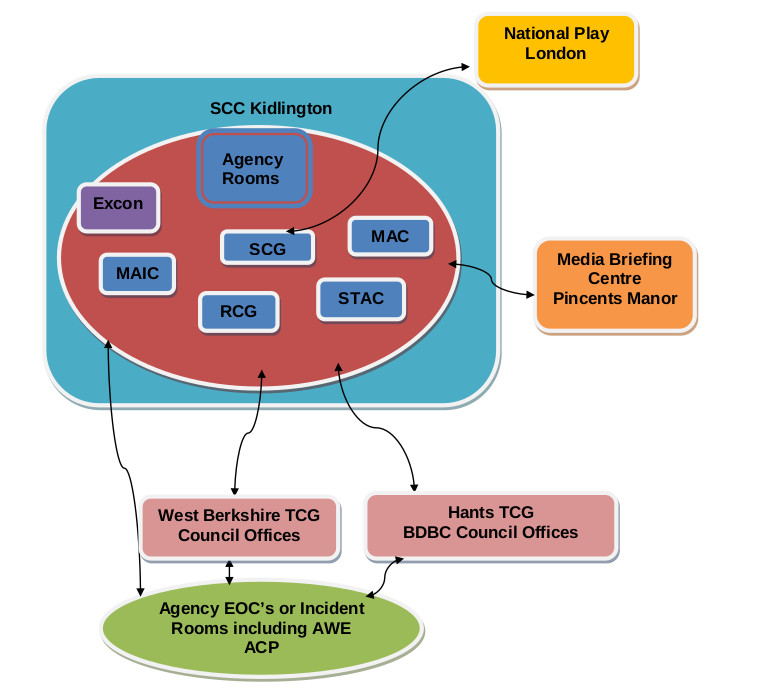In 2016 a major emergency exercise focussed on the Atomic Weapons Establishment (AWE), Aldermaston, identified shortcomings in providing accurate information to the media and integrating scientific and technical advice into the emergency response, according to feedback from participants.
The ALDEX 16 exercise was part of a series of ‘Level 3’ emergency simulation exercises designed to rehearse the involvement of local and central government in responding to a safety incident at a nuclear licensed site. It involved 395 participants from 32 agencies, many more external organisations than the more regular Level 2 exercises which are held every 3 years and only involve local agencies and the annual Level 1 exercises which rehearse the on-site emergency response. Level 3 exercises are held once a year, but only focus on one of the UK’s licensed sites at a time, whereas each site holds Level 2 and Level 1 exercises on a regular timetable. ALDEX 16 was the first Level 3 exercise to be held at AWE since it became a nuclear licensed site.
The exercise simulated a scenario where a containment breach at a radioactive handling facility resulted in an airborne release of radioactive material. In the scenario an equipment failure led to uncontrolled heating and a high pressure explosion in a building, expelling plutonium in liquid form into the atmosphere, starting several small fires within the building and causing air filters to fail.
The on-site response was coordinated through a command post at AWE Aldermaston, which reported simulated events to external agencies and responded to requests for information. The coordinating hub for the off-site response was the headquarters of Thames Valley Police in Kidlington, Oxfordshire, which hosted many of the exercise participants. The Strategic Coordinating Group and a number of key subsidiary groups including a Scientific and Technical Advisory Cell and a Media Advisory Cell were based in Kidlington
In 2017 West Berkshire council circulated an overview of the exercise, collating responses from participants. While some of the feedback was positive, participants also expressed concerns over a number of different areas, with communications and media being the most cited area for concern, followed by the Scientific and Technical Advisory Cell.
In both the Scientific and Technical Advisory cells it seems that one issue was integrating their work into the wider emergency response. The issues with the media cell were apparently partly due to the fact that many of the participants were taking part in the activity for the first time and were trying to put a new communications plan into place. Other issues highlighted by a number of respondents were information sharing and whether the hub in Thames Valley Police headquarters was a suitable base for a large scale emergency response.
p { margin-bottom: 0.25cm; line-height: 120%; }
